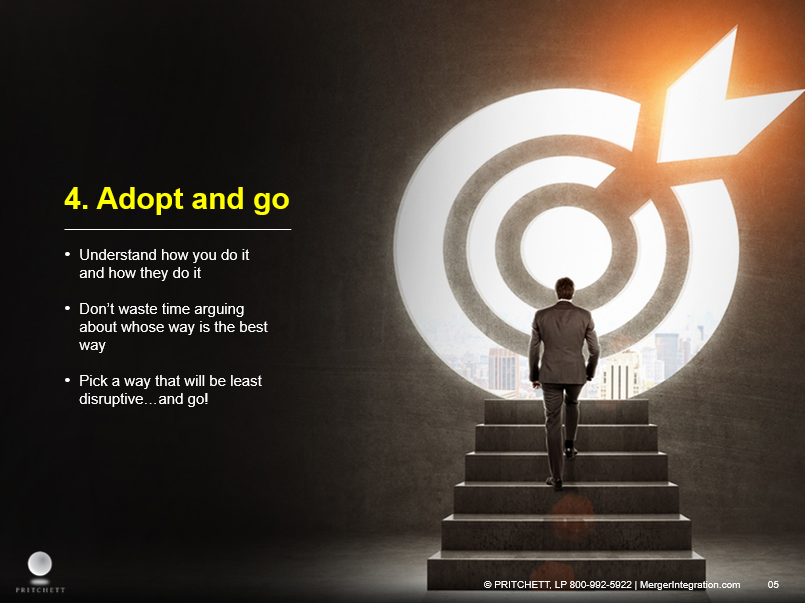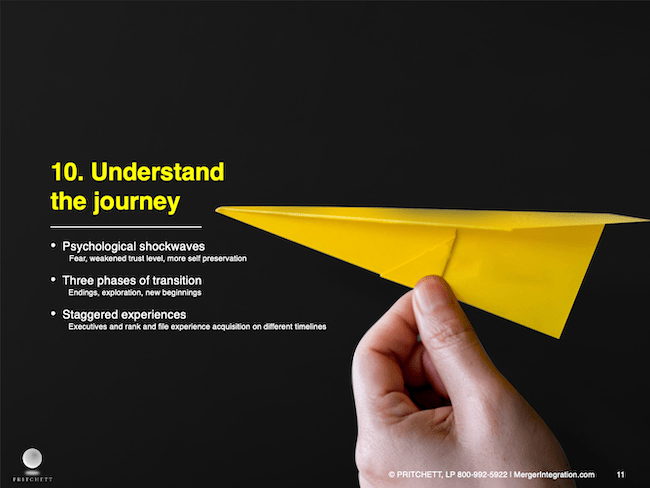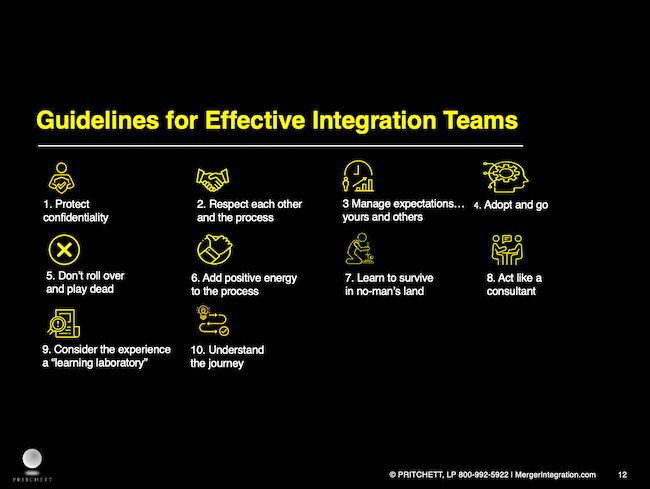Guidelines for Integration Teams
-
Protect confidentiality
- You’ve heard it before…but it’s worth repeating
- Don’t leave confidential documents in meeting rooms, on copiers, or open on your desk
- Be extremely careful about forwarding emails
-
Respect each other and the process
- Realize that there are different “realities” and respect different perspectives
- Follow a well-defined integration process
- Stay on schedule
-
Manage expectations. . . yours and others
- Be realistic about the challenge
- Delegate to your direct reports
- Encourage ruthless prioritization
-
Adopt and go
- Understand how you do it and how they do it
- Don’t waste time arguing about whose way is the best way
- Pick a way that will be least disruptive… and go!
-
Don’t roll over and play dead
- Your ideas matter
- Surface genuinely important issues
- Pick your battles carefully
-
Add positive energy to the process
- Transition is all about energy management
- When your energy is depleted, you’re responsible for replenishing it
- Without energy, the transition process grinds to a halt
-
Learn to survive in no-man’s land
- You won’t fit well in either the present or the future
- The old way won’t feel right, but the new way won’t work yet
- Find ways to stay connected
-
Act like a consultant
- Get on the balcony to look at issues
- Don’t take positions; discuss interests
-
Consider the experience a “learning laboratory”
- Consciously select areas where you want to personally develop as you go through this experience
- Without specific goals you’ll just survive, not thrive
- There’s a lot of permission to “experiment” with new skills
-
Understand the journey
- Psychological shockwaves
- Three phases of transition
- Staggered experiences















